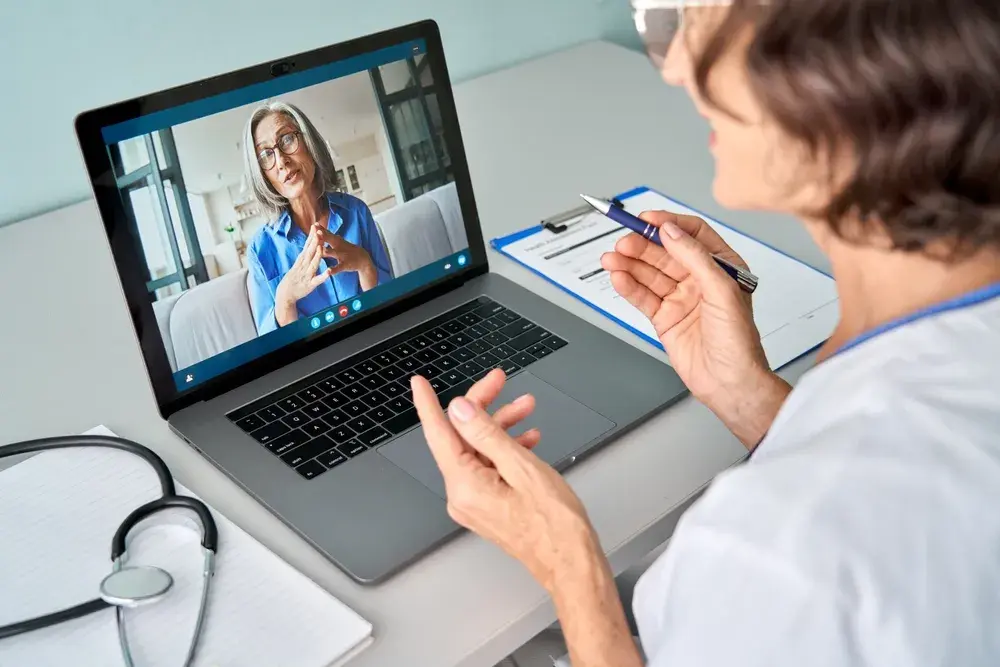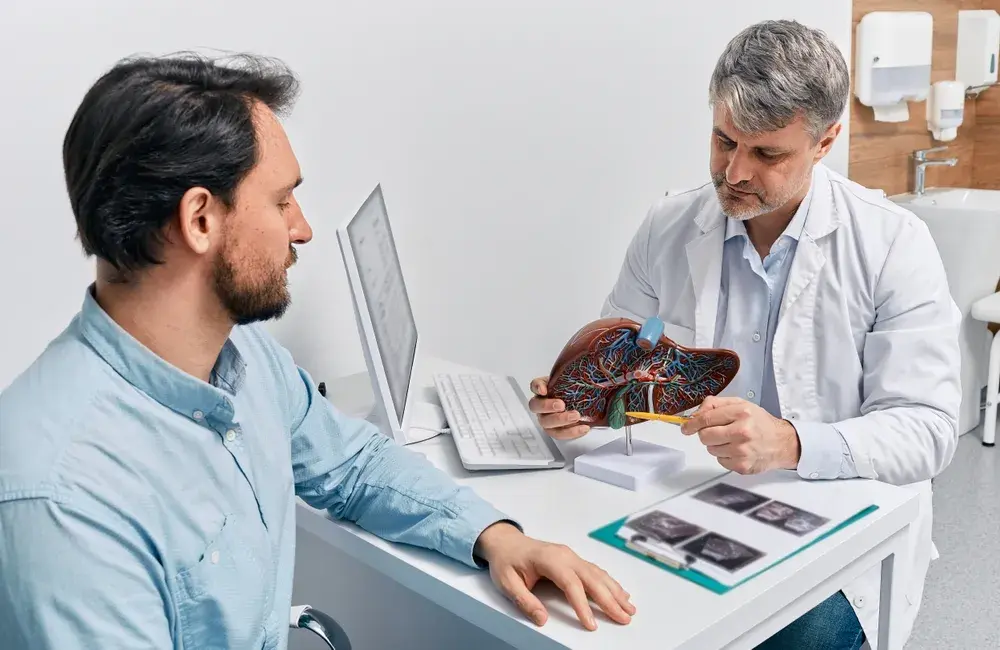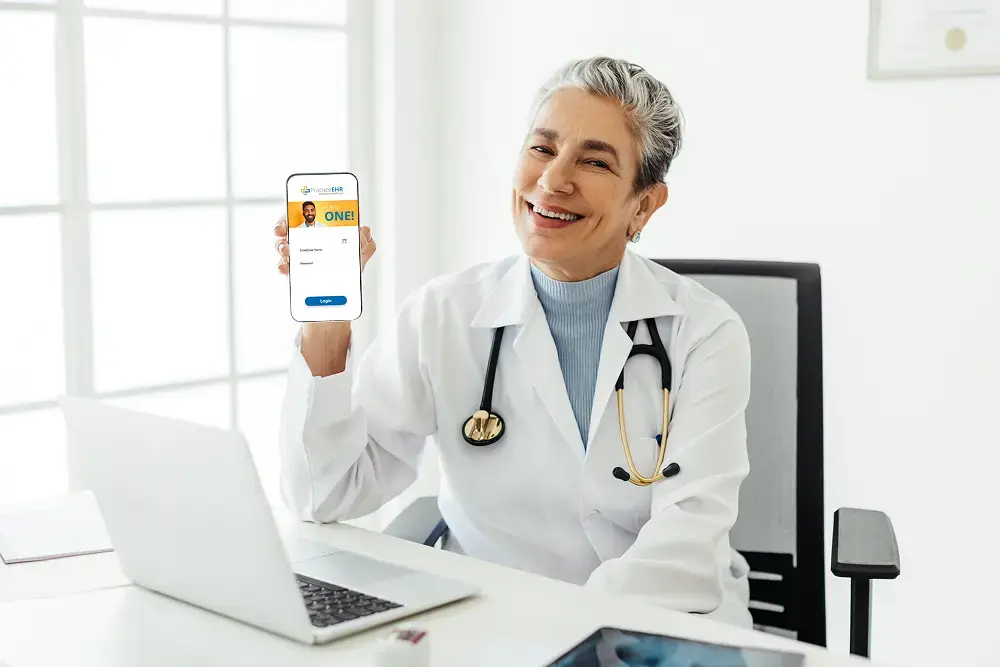From cameras to alarm clocks and phone books, everything you need is now on your smartphone. That’s because convenience is all that matters in the modern world. So why should managing your practice be any different?...
Research has underscored the significant impact of telemedicine on patient satisfaction within gastroenterology. Imagine missing out on such a crucial tool in managing patients with digestive disorders. Without a specialty-specific EHR system like Practice EHR, you may overlook critical features that ensure high patient satisfaction.
What is the solution? Consider having essential features like telemedicine integrated with your EHR. Given the complexity of managing multiple organs and functions, gastroenterologists require specialized tools designed specifically for their needs to enhance both efficiency and functionality in their daily practice.
So, what exactly are these gastroenterologist-specific tools? They are part of an all-in-one EHR system tailored to meet the unique demands of GI-specific practices. In this blog, we explore the essential features a gastroenterology EHR system must possess to ensure your practice can provide optimal patient care efficiently and effectively.
1. Specialized Documentation Templates
Specialized documentation templates are a crucial feature in EHR systems designed specifically to cater to the needs of gastrointestinal care. They are designed to enhance the efficiency and accuracy of clinical note-taking. These templates are tailored for common gastroenterological procedures such as colonoscopies, endoscopies, and liver biopsies, enabling quick and precise documentation of clinical findings.
These templates provide a structured format that gastroenterologists can easily customize and populate during patient visits. This helps reduce administrative burdens and allows more time for patient care.
Moreover, the use of specialized templates ensures that all necessary clinical information is captured systematically, facilitating a comprehensive review of patient history and ongoing treatment plans. This level of detail is essential for accurate diagnosis and effective management of gastrointestinal conditions, ultimately leading to improved patient outcomes and streamlined practice operations.

2. Integrated Lab Services
Integrated lab services within an all-in-one EHR system streamline the process of ordering, managing, and interpreting laboratory tests, which are crucial in diagnosing and monitoring gastrointestinal conditions like digestive disorders.
This feature allows gastroenterology associates to order lab tests directly from the EHR interface, ensuring that orders are accurate and reflect the patient’s health status. Once the lab results are available, they are automatically updated and integrated into the patient's electronic health record. This seamless integration facilitates immediate access to results, enabling timely clinical decisions.
Moreover, having lab results integrated within the EHR helps maintain a complete and up-to-date patient record, enhancing continuity of care. It eliminates the need for manual data entry in GI-specific practices, reduces the risk of errors, and saves valuable time for gastroenterology associates. By improving the efficiency of lab order management and result retrieval, integrated lab services support a more dynamic and responsive approach to patient care in GI-specific practices.
3. Telemedicine
Telemedicine, like Televisit from Practice EHR, is a transformative feature for patients with digestive disorders, offering significant benefits for both GI patients and healthcare providers. By allowing virtual consultations, telemedicine allows GI patients to receive timely medical advice without the need for physical visits.
This approach is particularly advantageous for those with chronic digestive disorders requiring regular monitoring. This EHR feature enhances patient convenience and satisfaction and extends care to those in remote or underserved areas.
For gastroenterology associates, telemedicine integrated into EHR systems facilitates efficient management of follow-up appointments and routine checks. It also allows for a more flexible response to patient needs, improving the capacity to handle urgent consultations swiftly. Incorporating telemedicine into gastrointestinal care through EHR systems thus represents a forward-thinking approach to improving the quality of gastrointestinal care.
4. Prescription and Medication Tracking
Prescription and medication tracking is a crucial feature of EHR for any specialty, enhancing the safety and efficacy of drug therapies administered to patients. This functionality allows seamless prescription management and ensures that all medication details are accurately recorded and easily accessible.
It plays a crucial role in preventing drug interactions, especially important in gastrointestinal care, where patients may be on multiple medications due to complex digestive disorders. The system automatically checks for potential drug interactions and allergies, alerting healthcare providers and gastroenterology associates to any risks that may compromise patient safety.
Moreover, medication tracking allows for continuous monitoring of patient adherence to prescribed treatments, facilitating timely adjustments when necessary. This feature ensures that therapeutic outcomes are optimized, contributing significantly to the overall success of patient care strategies in GI-specific practices.
5. Clinical Decision Support
Clinical Decision Support (CDS) within GI-specific EHR systems, like Practice EHR, is another crucial feature that enhances the quality of gastrointestinal care provided to patients. This feature supplies gastroenterology associates with intelligent, evidence-based clinical guidance tailored to the specifics of gastrointestinal care.
By integrating the latest research and guidelines directly into the workflow, CDS tools assist gastroenterologists in making informed, data-driven decisions regarding diagnostics and treatments of digestive disorders.
The system prompts physicians with alerts for potential issues, such as drug interactions or allergies, and recommends best practices for managing complex gastrointestinal disorders. These prompts ensure that care remains at the cutting edge of medical advancements and complies with established clinical protocols.
6. Billing and Coding Optimization
Billing and coding optimization streamlines financial processes and ensures accuracy in the economic aspects of care. This feature supports the complex nature of gastroenterology billing, which involves specific procedures, treatment codes, and insurance requirements that must be meticulously managed to avoid errors and denials.
Moreover, the system automates much of the billing process, from coding claims correctly based on the performed procedures to submitting them electronically to insurance providers. Reducing the manual input required minimizes the risk of human error and speeds up the reimbursement cycle.
Additionally, the best EHR system, like Practice EHR, continually updates to reflect any changes in coding regulations and payer policies. Thus, it ensures that the practice remains compliant with current standards and maximizes its revenue opportunities. GI-specific practices can enhance the operational efficiency of gastroenterology associates through effective billing and coding optimization.
7. Patient Portal
The patient portal enhances patient engagement and streamlines communication between patients and healthcare providers. This digital tool allows patients to access their health information securely anytime, anywhere, fostering transparency and encouraging active participation in their healthcare processes.
Patients can easily schedule appointments, view their test results, request prescription refills, and communicate directly with their gastroenterologists through the portal. This accessibility improves patient convenience and significantly reduces staff administrative workload, allowing for more efficient practice operations.
Moreover, the patient portal serves as a valuable educational resource where patients with digestive disorders can find information about their conditions and treatments, helping them to better understand and manage their health.

Practice EHR - ONE That Streamlines Gastroenterology Practice Management!
Practice EHR stands out as a premier software solution that streamlines management for gastrointestinal care practices. Tailored specifically to meet gastroenterologists’ unique demands, Practice EHR ensures that every aspect of managing digestive disorders is handled with precision and efficiency.
From specialized documentation templates to integrated billing and coding systems, Practice EHR addresses the complex needs of gastroenterology associates, allowing them to focus more on patients with digestive disorders and less on administrative tasks.
With features like telemedicine and a robust patient portal, it also enhances patient engagement and satisfaction, which is crucial for managing the long-term health concerns typical in gastrointestinal care.
Topics: Integrated EHR, Healthcare Office Management, EHR Solution, Specialty-Specific EHR, EHR, Technology in Healthcare, EHR Features, Gastroenterology EHR, Gastroenterology
RECENT POSTS



TOPICS
- EHR Solution (147)
- EHR (84)
- Patient Care (77)
- digital age (77)
- Medical Billing (72)
- Specialty-Specific EHR (70)
- Integrated EHR (59)
- Small Practice (56)
- Technology in Healthcare (55)
- Industry Update (50)
- New Technology (47)
- Medical billing services (45)
- RCM (43)
- EHR Features (42)
- Cloud-based EHR (39)
- Practice EHR News (39)
- Healthcare Office Management (37)
- Kiosk (28)
- ePrescribing (21)
- HIPAA Security (20)
- Telemedicine (14)
- EMR (12)
- Revenue Cycle Management (12)
- Practice Management Software (11)
- Client Favorites (10)
- Practice Automation (10)
- The ONE (10)
- Urgent Care (8)
- MACRA/MIPS (7)
- Patient Portal (7)
- Switching to New EHR (6)
- events (6)
- E-Prescribing (5)
- Product Updates (5)
- TeleVisit (5)
- AI Solutions (4)
- Insider (4)
- Internal Medicine EHR (4)
- MIPS (4)
- Podiatry (4)
- Podiatry EHR (4)
- AI Scribing (3)
- HIPAA (3)
- MIPS Reporting (3)
- Regulatory Updates (3)
- AI scanning (2)
- Billing for Private Practices (2)
- Clearinghouse (2)
- Dermatology EHR (2)
- EHR Scheduling (2)
- Foot and Ankle Care (2)
- Foot and Ankle EHR (2)
- Health records 101 (2)
- Integrated Practice Management (2)
- Medical Credentialing (2)
- Medical Practice Management Software (2)
- Orthopedics EHR (2)
- Patient Check-in Kiosk (2)
- Psychiatry EHR (2)
- Quality of Patient Care (2)
- Reporting Under MIPS (2)
- Risk and Liability in Medical Settings (2)
- Telehealth Platform (2)
- Telehealth Platforms (2)
- What Works Clearinghouse (2)
- AI-powered Medical Billing (1)
- Bariatric EHR (1)
- Behavioral Health Practices (1)
- Billing Communication (1)
- Cardiology EHR (1)
- Cash Flow (1)
- Chiropractic EHR (1)
- Data Security (1)
- Dos and Don'ts (1)
- EHR Guides (1)
- EHR KPIs (1)
- EHR Questions to Ask (1)
- EHR for Chiropractors (1)
- EHR for Chronic Illness (1)
- EMR vs EHR Difference (1)
- ENT EHR (1)
- Eligibility Verification in Medical Billing (1)
- Endocrinology EHR (1)
- Family Medicine (1)
- Family Medicine EHR (1)
- Gastroenterology (1)
- Gastroenterology EHR (1)
- General Surgery EHR (1)
- Geriatrics EHR (1)
- Guides (1)
- Healthcare Compliance Certification (1)
- Healthcare Practice Office Management (1)
- Help Center Videos (1)
- Insurance Reimbursement (1)
- KPI (1)
- Key Performance Indicators (1)
- Lab Processing (1)
- MACRA (1)
- Medical Billing Partner (1)
- Medical Coding Services (1)
- Mobile EHR (1)
- Nephrology EHR (1)
- Neurology EHR (1)
- Pain Management EHR (1)
- Pediatrics EHR (1)
- Physical Therapy EHR (1)
- Practice Cash Flow (1)
- PracticeEHR GO App (1)
- Pulmonology EHR (1)
- Simplify Practice Management (1)
- Staffing in Healthcare (1)
- Switch Medical Billing Providers (1)
- Urgent Care Medical Billing (1)
- Urology EHR (1)
- insurance claim denials (1)







